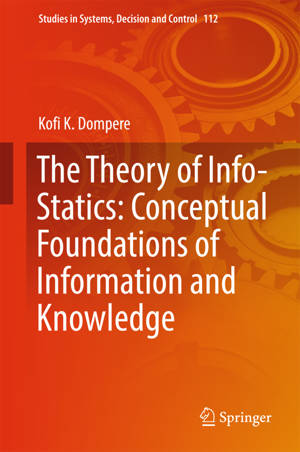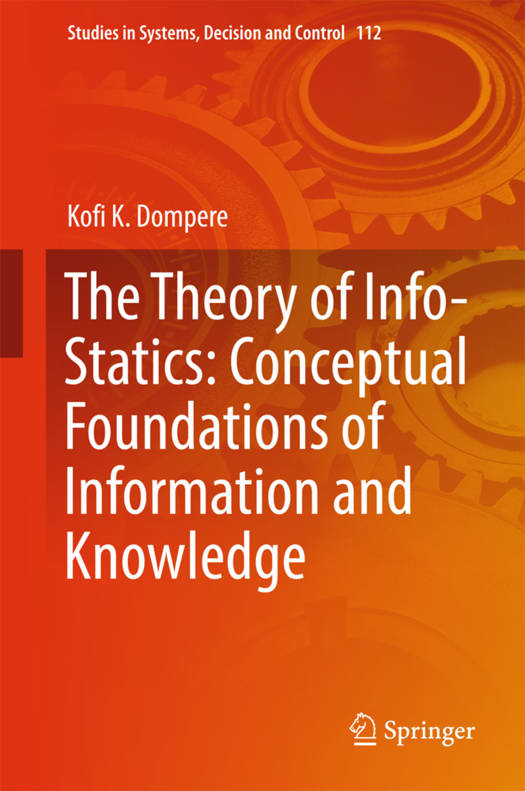
Bedankt voor het vertrouwen het afgelopen jaar! Om jou te bedanken bieden we GRATIS verzending (in België) aan op alles gedurende de hele maand januari.
- Afhalen na 1 uur in een winkel met voorraad
- In januari gratis thuislevering in België
- Ruim aanbod met 7 miljoen producten
Bedankt voor het vertrouwen het afgelopen jaar! Om jou te bedanken bieden we GRATIS verzending (in België) aan op alles gedurende de hele maand januari.
- Afhalen na 1 uur in een winkel met voorraad
- In januari gratis thuislevering in België
- Ruim aanbod met 7 miljoen producten
Zoeken
The Theory of Info-Statics: Conceptual Foundations of Information and Knowledge
Kofi K Dompere
€ 181,95
+ 363 punten
Uitvoering
Omschrijving
This book discusses the development of a theory of info-statics as a sub-theory of the general theory of information. It describes the factors required to establish a definition of the concept of information that fixes the applicable boundaries of the phenomenon of information, its linguistic structure and scientific applications. The book establishes the definitional foundations of information and how the concepts of uncertainty, data, fact, evidence and evidential things are sequential derivatives of information as the primary category, which is a property of matter and energy. The sub-definitions are extended to include the concepts of possibility, probability, expectation, anticipation, surprise, discounting, forecasting, prediction and the nature of past-present-future information structures. It shows that the factors required to define the concept of information are those that allow differences and similarities to be established among universal objects over the ontological and epistemological spaces in terms of varieties and identities. These factors are characteristic and signal dispositions on the basis of which general definitional foundations are developed to construct the general information definition (GID). The book then demonstrates that this definition is applicable to all types of information over the ontological and epistemological spaces. It also defines the concepts of uncertainty, data, fact, evidence and knowledge based on the GID. Lastly, it uses set-theoretic analytics to enhance the definitional foundations, and shows the value of the theory of info-statics to establish varieties and categorial varieties at every point of time and thus initializes the construct of the theory of info-dynamics.
Specificaties
Betrokkenen
- Auteur(s):
- Uitgeverij:
Inhoud
- Aantal bladzijden:
- 197
- Taal:
- Engels
- Reeks:
- Reeksnummer:
- nr. 112
Eigenschappen
- Productcode (EAN):
- 9783319616384
- Verschijningsdatum:
- 18/07/2017
- Uitvoering:
- Hardcover
- Formaat:
- Genaaid
- Afmetingen:
- 156 mm x 234 mm
- Gewicht:
- 489 g

Alleen bij Standaard Boekhandel
+ 363 punten op je klantenkaart van Standaard Boekhandel
Beoordelingen
We publiceren alleen reviews die voldoen aan de voorwaarden voor reviews. Bekijk onze voorwaarden voor reviews.









